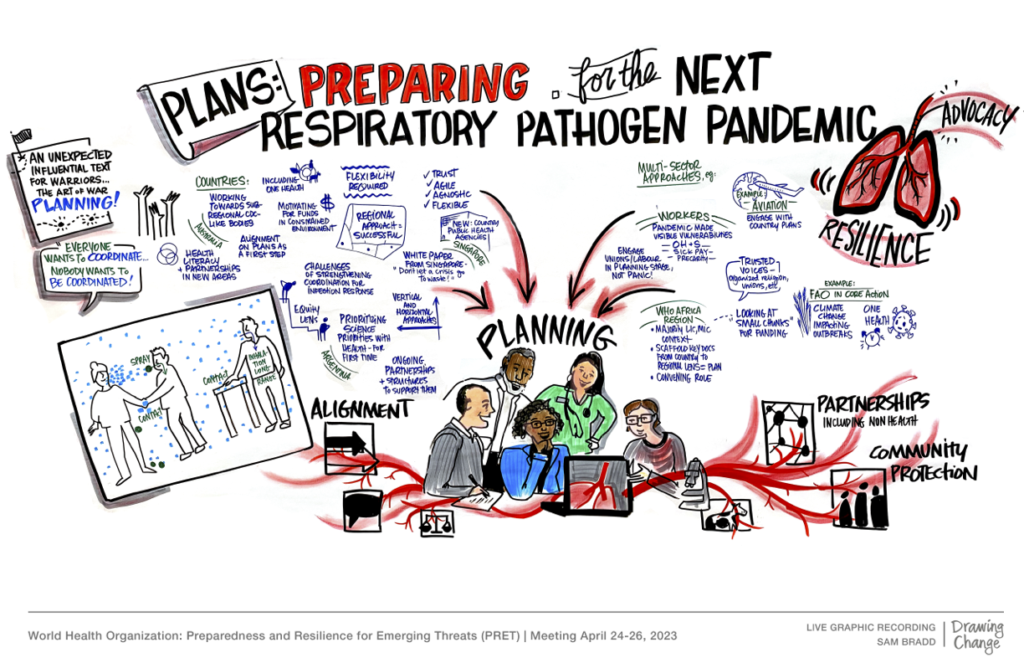South Africa Gears Up for Future Respiratory Pathogen Pandemics with New Preparedness Plan
South Africa is making significant strides in pandemic preparedness with the development of a comprehensive National Respiratory Pathogen Pandemic Preparedness Plan.
This initiative aligns with the World Health Organization’s (WHO) PRET (Preparedness and Resilience for Emerging Threats) initiative, aiming to enhance the nation’s readiness for future respiratory pathogen pandemics.
From August 19-21, 2024, Johannesburg hosted a crucial tabletop simulation exercise, Exercise PanPRET-1, which brought together multidisciplinary stakeholders to test and refine the draft preparedness plan.
Organized by the National Department of Health in collaboration with the National Institute for Communicable Diseases, WHO, the International Organization for Migration, and Doctors Without Borders, the exercise engaged representatives from government, military, and health sectors.
The simulation featured a four-stage scenario, starting with an outbreak of a novel respiratory virus and progressing through to the pandemic’s end. Participants assessed the plan’s effectiveness and identified areas for improvement. Key learnings emphasized the need for robust multisectoral coordination and communication mechanisms.
Dr. Lwazi Manzi, Lead of Pillar 10 (Pandemic Prevention, Preparedness, and Response) of the Second Presidential Health Compact, praised the exercise, noting its role in ensuring adequate preparedness and refining the country’s strategy.
Dr. Wayne W. Ramkrishna from the National Department of Health highlighted the valuable discussions and outputs that will enhance the preparedness plan.
Ms. Camren McAravey of Doctors Without Borders commended the collaborative effort, while Dr. Joseph Wamala of WHO applauded South Africa’s leadership in strengthening pandemic response capabilities.
Dr. Lionel Nizigama of WHO Regional Office for Africa emphasized the importance of multisectoral engagement in building resilient systems for future pandemics.



